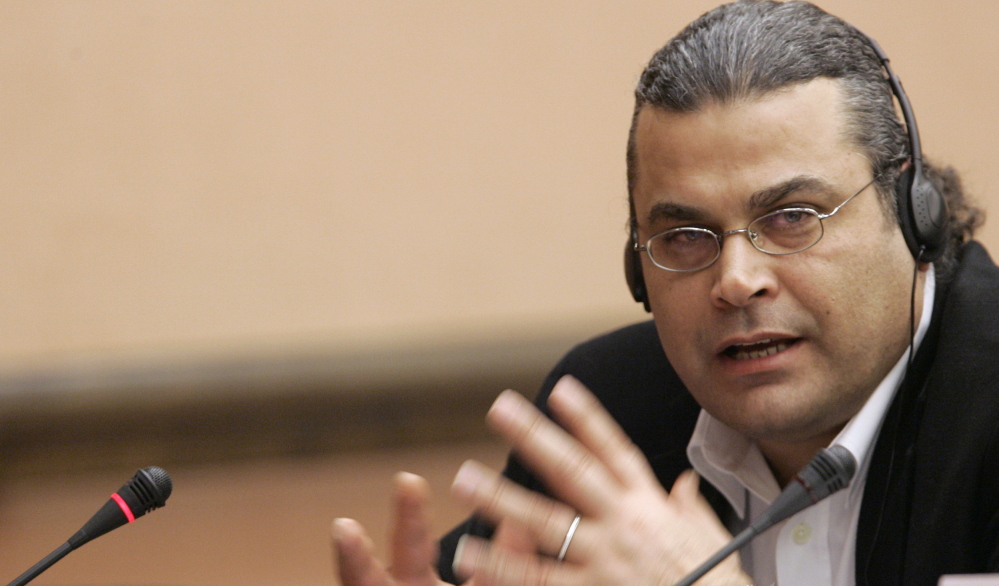ULM, Germany — Khalid al-Masri is a broken man today. A decade after the CIA snatched him by mistake, flew him halfway around the world in secret, and questioned him as part of its detention and interrogation program, he’s yet to recover.
He’s abandoned his home. He no longer is part of the lives of his wife or children. Friends can’t find him. His attorneys can’t find him. German foreign intelligence will only say he’s “somewhere in a Western-leaning Arab nation.”
When his Ulm attorney, Manfred Gnjidic, last saw him, he was broke, unkempt, paranoid and alone. He’d been arrested twice and sent once to a psychiatric ward, once to jail. He was with no hope of the extensive help he needed.
Masri’s case is one of the 26 instances detailed in the Senate Intelligence Committee report when the CIA snared someone in its web of secret dungeons by mistake, realized its error after weeks or months of mistreatment, and then let them go. But the report, made public Tuesday, does not recount what that mistake meant to Masri’s life.
“I was stunned by the torture report,” Gnjidic said. “They had known and privately admitted for years that they had made a mistake regarding Khalid,” who is a German citizen.
And yet the CIA, which realized its error within weeks of Masri’s January 2004 detention, remained silent, as did the Senate Intelligence Committee, which learned of the mistake in 2007.
Masri’s CIA detention, which combined with Macedonia intelligence detention, totaled 35 days by CIA count, but closer to four months by Masri’s.
The Senate report does not discuss his treatment in detention. But Masri has insisted over the years that he was tortured. He’s described being shackled to the ceiling while naked, unable to sit for days, existing on nothing, in the dark, a scenario that appears to be common in the torture report. A European court ruled in 2012 that he’d been sodomized and drugged.
The shadow cast by that detention saw him labeled by German media as an “Islamist extremist.”
In 2010, the German newspaper Bild ran a story about him under a headline asking “Why do we allow ourselves to be terrorized by such a man?”
But the truth of his case was evident just days after CIA agents stuffed Masri’s head into a hood and chained him to the floor of an aircraft that took him from Europe to Afghanistan in January 2004. The CIA officers tasked with getting at his terror connections soon expressed doubts about whether he had any.
In emails, CIA officers in Afghanistan noted that Masri, who’d been on vacation in Macedonia, “seemed bewildered on why he has been sent to this particular prison . . . adamant that (CIA) has the wrong person.”
As the CIA became convinced it had the wrong guy, the question became what to do with him. Their decision was simple, fly him back to Macedonia, dump him on a roadside, hand him 14,500 euro (about $17,000 at the time) and tell him to make his way back home.
According to the Senate report, the CIA inspector general concluded that “available intelligence information did not provide a sufficient basis to render and detain Khalid al Masri.”
There were no consequences for those who made the mistakes. The Senate report notes that the CIA argued against punitive action because “the Director strongly believes that mistakes should be expected in a business filled with uncertainty and that, when they result from performance that meets reasonable standards, CIA leadership must stand behind the officers who make them.”
Neither the report nor the available CIA documents discuss what to do about the victim of that mistake.
Send questions/comments to the editors.



Success. Please wait for the page to reload. If the page does not reload within 5 seconds, please refresh the page.
Enter your email and password to access comments.
Hi, to comment on stories you must . This profile is in addition to your subscription and website login.
Already have a commenting profile? .
Invalid username/password.
Please check your email to confirm and complete your registration.
Only subscribers are eligible to post comments. Please subscribe or login first for digital access. Here’s why.
Use the form below to reset your password. When you've submitted your account email, we will send an email with a reset code.